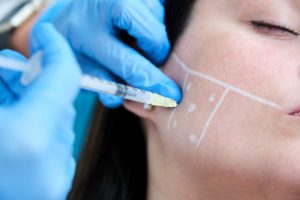
Do you grind your teeth?
People suffering from stress or anxiety may also be grinding their teeth and clenching their jaws, unwittingly causing jaw pain.
Some people don’t even realise they’re doing it, especially during their sleep. Unconscious, stress-induced teeth grinding is called bruxism, and it is relatively common. One oral surgeon in America recently estimated that it affects between 10 and 20% of the world’s population.
The main causes, he says, are related to muscle tension produced by stress or anxiety, as well as other psychological states such as anger and frustration, often triggered by numerous stressful occurrences in fast-paced lives. Menopause may also trigger it. Symptoms include teeth that are unusually worn or cracked, tooth sensitivity, sleep disturbances, tight facial muscles, and frequent headaches.
Daytime bruxism:
Occurs during waking hours and is usually more directly related to stress, anxiety, intense concentration, or certain postural habits. Causes jaw pain or fatigue in the muscles of the face, especially at the end of the day.
Nocturnal bruxism:
Occurs involuntarily at night and when asleep, and may cause jaw, head, and neck pain upon waking, along with wearing down and damaging teeth.
Treatment:
Finding a solution is not as easy as simply telling yourself to stop. Sometimes it can disappear on its own, and other times it can be a chronic condition. Ask an expert such as your dentist or orthodontist for an evaluation, and recommended treatments. Various ways are used to treat bruxism, depending on the level and type that’s occurring. These include a splint to reduce unconscious movements, physiotherapy, and Botox. The latter involves placing botulinum toxin in the area of the masseter muscle and the temporal muscle bilaterally to release tension and demobilise the stressed parts of the face.
Although stress is one of the most determining factors of bruxism, it can also be caused by incorrect teeth alignment.




